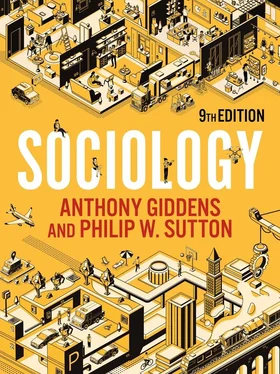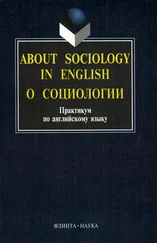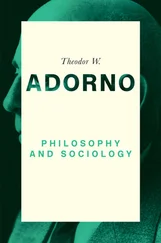Studying society often brings surprising results and frequently runs counter to ‘common-sense’ beliefs. What do teenagers actually use their smartphones for? Have the circumstances of ethnic and sexual minorities in Canada improved over time? Why does large-scale poverty still exist in the USA alongside the immense personal wealth of a small minority? Why have many people across the European Union lost faith in conventional party politics? Sociologists try to provide answers to these and many other questions, but their determinations are by no means final, as society is always in a process of change and later research makes new findings. Nevertheless, it is the aim of theorizing and research to break away from speculation and to base our understanding on evidence. Good sociology makes its research questions as precise as possible and seeks to gather factual evidence before reaching general conclusions. To achieve these aims, we must select the most useful research methods to use for a given study and know how best to analyse the results.
Sociologists often ask empirical or factual questions. For example, what kinds of occupation and domestic arrangements are most common among MSM in public parks and toilets in China? What proportion of the participants do the police arrest? Even factual questions of this kind can be difficult to answer. There are no official statistics on sexual activity in tearooms, saunas and parks, for example. Similarly, official crime statistics have been found to be of dubious value in revealing the ‘real’ level of criminal activity in a society. Researchers who study crime say that police-recorded crime figures are just the visible tip of a much larger ‘iceberg’ of crime (Simmons and Dodds 2003). Indeed, some criminal actions may be seen by victims as purely private matters that are not ‘crimes’ at all (see chapter 22, ‘Crime and Deviance’, for a discussion of crime statistics).
Factual information about one national society will not tell us whether we are dealing with an unusual case or a more general set of social influences. Hence, sociologists often ask comparative questions, relating findings from one society to another social context or using contrasting examples drawn from different societies across the world. There are significant differences, for example, between the social and legal systems of Russia, Italy and South Korea. A typical comparative question might be: how much do patterns of criminal behaviour and law enforcement vary between these three countries? Answering this question might lead us to other questions, such as how did systems of law enforcement develop over time and how similar or different are the penal regimes in these countries?
In sociology, we need to compare not only contemporary societies but also the present and the past to gain a better understanding of social development. In this case we ask historical or developmental questions: how did we get from there to here? To understand the nature of the modern world, we have to look at previous forms of society and processes of social change. Thus we can investigate how the first prisons originated and what they are like today, tracing key periods or phases of change in this development. Doing so provides us with a good part of an explanation.
Sociological research is not just the collection of facts, however important and interesting they may be. It is a truism in sociology that ‘the facts don’t speak for themselves’; they always need to be interpreted. This means we must learn how to ask theoretical questionsconcerned with why things happen the way they do. Some sociologists work primarily on empirical questions, but unless their research is guided by some knowledge of theory their findings are unlikely to be particularly illuminating (see table 2.1). At the same time, sociologists do not pursue theoretical knowledge for its own sake, as this runs the risk of falling into pure speculation far removed from the evidence. Reliable sociological knowledge is essentially theoretical-empirical in character. The combination of empirical research alongside theorizing is a key defining characteristic of all scientific disciplines, and sociology is no exception.
What is ‘science’ anyway?
In the early nineteenth century, Auguste Comte described sociology as an emerging science that should adopt the successful methods of the natural sciences such as physics and chemistry. Durkheim, Marx and other founders also saw sociology as a scientific subject, but today many sociologists are not so sure. Can social life be studied in a scientific way? Should it be? Are Laud Humphreys’ observations on the tearooms scientific, and what is ‘science’ anyway? Perhaps surprisingly there is no simple or agreed answer to that last question. The best way to understand why is to take a whistle-stop tour of key arguments from studies in the philosophy and history of science, which should help us to understand the academic status of sociology.

Imprisonment of offenders is common across many societies, but to understand how similar or different these are requires comparative empirical studies of penal regimes.
Table 2.1 The sociologist’s line of questioning
| Factual question |
What happened? |
It is reported that some men in China use dating apps to find male sexual partners. |
| Comparative question |
Did this happen everywhere? |
Is this a widespread phenomenon, or is it occurring only in China? Is the behaviour restricted to self-identifying gay men? |
| Developmental question |
Has this happened over time? |
What methods have men used in the past to find male sexual partners? Are they essentially similar to or different from the use of dating apps? |
| Theoretical question |
What underlies this phenomenon? |
Why are men now using apps rather than older methods? What factors should we look at that might explain this changing behaviour? |
In chapter 1, ‘What is Sociology?’, Comte argued that the positive stage of human knowledge produces reliable, valid knowledge that would, ultimately, enable progressive interventions into nature and society. Science is superior to all previous routes to knowledge and a prerequisite for development in the modern world. For Comte, science is an essentially unitary endeavour. That is, all scientific subjects use a similar method, which means that the social and natural sciences are not fundamentally different. Science begins with observation and the collection of data, then proceeds to look for patterns within the observed facts, before moving on to develop general theories which provide explanations of the evidence. This ‘ground-up’ process of research is known as induction. However, Comte’s argument is rooted in a rather idealized picture of science that is not based on the actual practice of scientists. From the early twentieth century, this inductive description of science began to be overturned.
Positivism and the philosophy of science
In 1920s Austria, an influential group of philosophers, known as the Vienna Circle, set out important modifications to Comte’s positivist position. In particular, they tried to clarify what counts as ‘science’ and why the statements scientists make about the world can be accepted as ‘true’. They focused on logic and deductive reasoning rather than simple induction and their approach was described as logical positivism. This recognized that scientists do not go around collecting data and later try to explain what they find (inductive method). Rather, they begin by formulating hypotheses – clearly framed questions or statements about some aspect of reality – and then set out to collect empirical evidence that will verify these (hypothetico-deductive method). To be scientifically valid, they argued, scientific statements and theories always have to be tested against evidence. This is unlike other forms of ‘knowledge’. For example, it is just not possible to say that any particular moral standpoint on poverty or an aesthetic judgement about what is beautiful is ‘true’, however much we debate these subjects. Statements in these fields do not uncover truths about the world and are therefore scientifically meaningless.
Читать дальше













